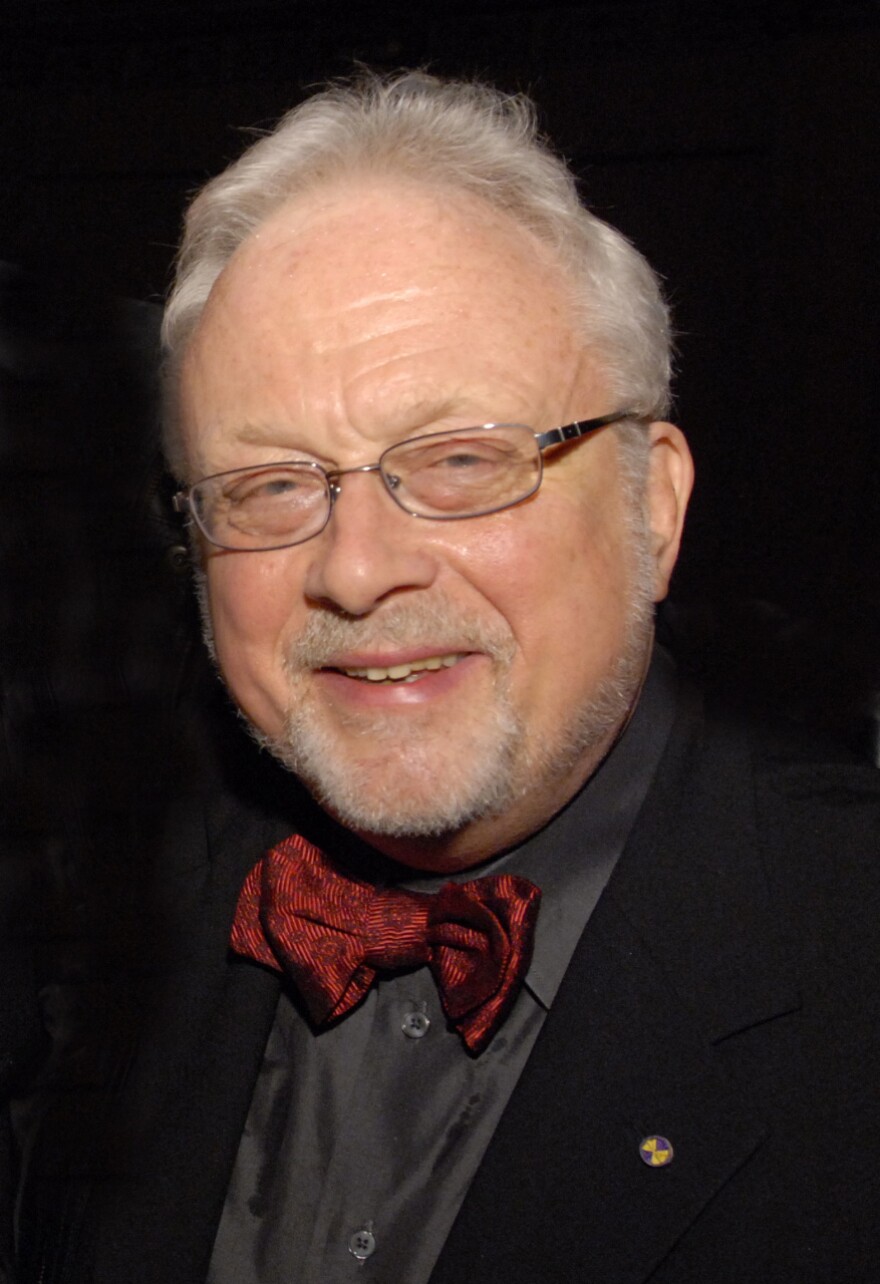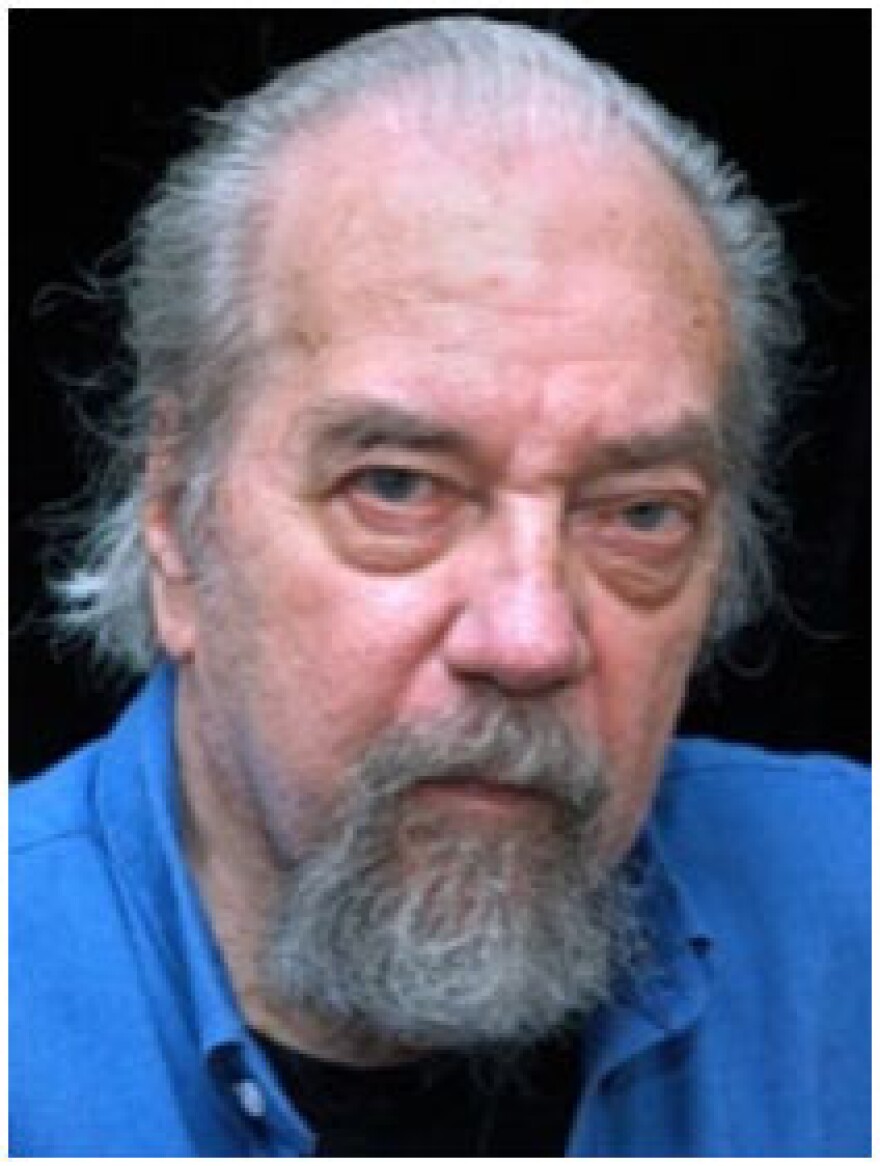
The grief and sadness of December 14, 2012 has been expressed through countless poems, songs and other works of art, including the choral work, "Solace," a simple, solemn remembrance of the victims of Newtown, written by one of America's leading poets, and set to music by a Pulitzer prize-winning composer.
Less than two weeks after the Newtown tragedy, Connecticut's Poet Laureate Dick Allen wrote a letter to The Hartford Courant lamenting the deluge of sentimental poems sent to newspaper editors after tragedies like Newtown -- poems written by well-meaning, amateur poets. "Unfortunately," he said, "poetry written very close to the time of a tragic event like Newtown is often, shall we say, weak -- so heartfelt , so spontaneous, that it often turns into cliché. The imagery isn't there; the rhythm isn't there; it just isn't there."
Clearly, Allen had no intention of writing a poem about Newtown, but even as he worked on other poems in early January, a random phrase made him rethink his Hartford Courant article. "A line just occurred to me," he said, "and the line was, in the snow lightly falling, and I couldn't get it out of my head."
And so, against his better judgment, he set aside his other poems, and started to write a poem for the victims of Newtown. Allen said, "I used the in the snow lightly falling as a first line, but that didn't seem right, so I changed it to -- well, let's give it a location -- there are the fields we'll walk across, in the snow lightly falling. Utterly simple, and I usually write fairly complicated poems."
It's here that the word imagery of the first few stanzas of the poem ends, and a message of consolation comes forth. Allen said, "And then the poem says, no small hand will go unheld, and no voice will go unheard, in the snow lightly falling." He admitted that he became obsessed with the poem.
Allen completed the work in two weeks, but waited much longer than that to show the work to anyone. "I was really worried about taking advantage of a situation," he said. "I've seen people try to use a situation of grief to forward their own work." He finally sent the poem to a half-dozen friends who reassured him his words struck the right balance of respect and consolation without being melodramatic or overly sentimental.
Right around the same time, the Hartt School's Glen Adsit contacted Allen to see if he would be willing to collaborate with Pulitzer prize-winning composer William Bolcom on a large-scale commission in tribute to the victims of Newtown. Allen agreed, and sent along "Solace." William Bolcom also agreed, but felt a large-scale work just didn't seem appropriate for the tragedy at Newtown. Bolcom said, "I felt somehow that would be too grandiose. I'd rather do something really modest, something that could be done by lots of people if they want to. So I got this wonderful poem from Dick Allen, whom I didn't know at all. It seemed absolutely perfect, and I loved his modesty; I loved the fact that it wasn't hitting you in the nose, and that it was quite moving."
Listen to Allen recite his poem, "Solace."
Bolcom wanted to capture the simplicity of Allen's poem musically while writing a piece that even amateurs could perform. "I think it's written so that an averagely good solid church choir, or city choir, or amateur choir, could do it," Bolcom said. "That's the very reason I made it as simple as I could, because the poem really calls for that."
Gabriel Lofvall, artistic director of Torrington's Chorus Angelicus and music director of St. Patrick/ St. Anthony church Hartford, said there is a sophistication within the the simplicity of Bolcom's setting. "It's written in such a clever way," Lofvall said, "because even though sounding so simple, it is complex. It has rhythmic intricacies that make it complex for the performer, yet it keeps that childish character throughout."
Listen to a performance of "Solace" by members of the St. Patrick/St. Anthony Church Gallery Choir:
Allen was on hand for the world premiere of "Solace" last year in Hartford, and said Bolcom's treatment of his poem was spot-on. Neither Allen nor Bolcom wanted a commission or royalties for their efforts. Rather, they insisted that the work be available to anyone free of charge.

